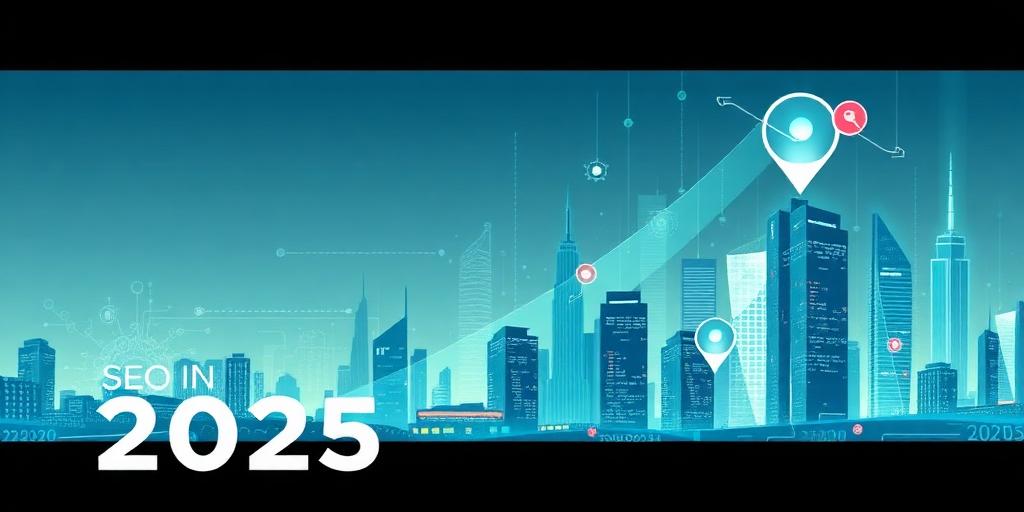What Is SEO and Why Is It Important in 2025?
Search Engine Optimization (SEO) is the practice of optimizing your website to rank higher in search engine results pages (SERPs) like Google, Bing, and Yahoo. In simpler terms, it's about making your website more visible to people who are searching for products, services, or information related to your business. In 2025, with the ever-increasing volume of online content, SEO is not just important—it's essential for survival.
Understanding SEO
SEO involves various techniques and strategies, all aimed at improving a website's visibility. These can be broadly categorized into:
- On-Page SEO: Optimizing elements within your website, such as content, title tags, meta descriptions, and internal linking.
- Off-Page SEO: Activities conducted outside your website to improve its authority and reputation, primarily through backlinks from other reputable sites.
- Technical SEO: Ensuring your website is technically sound, with aspects like site speed, mobile-friendliness, site architecture, and crawlability optimized for search engine bots.
Why SEO Matters in 2025
Increased Visibility and Organic Traffic: A higher ranking in search results means more people will see your website. Organic traffic, which comes from search engines, is often the most valuable because it consists of users actively searching for what you offer.
Building Trust and Credibility: Websites that rank high are generally seen as more trustworthy and authoritative by users. Good SEO helps establish your brand as a leader in your industry.
Cost-Effective Marketing: Compared to paid advertising, SEO offers a cost-effective way to drive traffic to your website. While it requires an initial investment of time and resources, the long-term benefits can outweigh the costs of continually paying for ads.
Better User Experience: SEO is not just about search engines; it's also about improving the user experience. A well-optimized website is faster, easier to navigate, and provides valuable content, leading to happier visitors.
Mobile Optimization is Crucial: As mobile devices continue to dominate web browsing, optimizing your site for mobile is more important than ever. Google prioritizes mobile-first indexing, meaning it primarily uses the mobile version of a site for indexing and ranking.
Voice Search Optimization: With the rise of voice assistants like Siri, Alexa, and Google Assistant, voice search is becoming increasingly popular. Optimizing your content to answer common questions in a conversational manner can help you capture this growing segment of search traffic.
Staying Ahead of the Competition: In a competitive market, SEO can be the differentiating factor that sets you apart. Businesses that invest in SEO are more likely to outrank their competitors and capture a larger share of the market.
SEO Trends to Watch in 2025
- AI and Machine Learning: Search engines are increasingly using AI and machine learning to understand user intent and deliver more relevant results. Adapting your SEO strategy to align with these advancements is crucial.
- E-A-T (Expertise, Authoritativeness, Trustworthiness): Google places a high value on E-A-T. Demonstrating expertise, building authority, and fostering trust are essential for ranking well, especially in YMYL (Your Money or Your Life) topics.
- Video SEO: Video content is becoming more popular, and optimizing your videos for search can drive significant traffic. Focus on creating high-quality videos and optimizing titles, descriptions, and tags.
- Local SEO: For businesses with a local presence, optimizing for local search is vital. Ensure your Google My Business profile is complete and accurate, and focus on building local citations.
Conclusion
In 2025, SEO remains a critical component of any successful online marketing strategy. By understanding the core principles of SEO and staying up-to-date with the latest trends, businesses can improve their visibility, attract more organic traffic, and achieve their business goals. Ignoring SEO is no longer an option; it's a necessity for thriving in the digital landscape.









